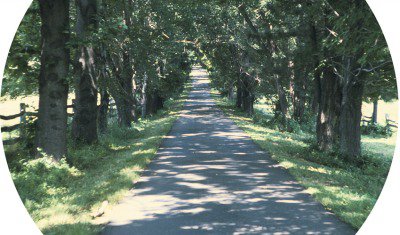Robert Barry
dal 13/12/2012 al 25/1/2013
Segnalato da
13/12/2012
Robert Barry
Yvon Lambert, Paris
Light and Dark. The Projections of Robert Barry (1967-2012). Historical works from the 60's such as Scenes or Red Seconds will be shown in conversation with contemporary works such as Love songs.

Yvon Lambert is pleased to present the exhibition Light and Dark - The Projections of
Robert Barry 1967 - 2012 by the American artist Robert Barry.
Barry is one of the four founders of the conceptual art movement. He started working
with Yvon Lambert in 1969 and since this time more than 20 exhibitions have been
organized with the artist at the gallery.
Debuting in France, Yvon Lambert presents an exhibition exclusively devoted to
Barry’s 16 mm films and videos, as well as a seminal slide projection from the artist’s
oeuvre, Belmont, 1967. The works have been shown separately in important institu-
tions around the world, but this is the first occasion they will be shown together.
Thus,
historical works from the 60’s such as Scenes, 1967 (16mm film shown at the Van
Abbe Museum and at the Whitney Museum) or Red Seconds, 1966-1967 (presented
at the Tate Modern) will be shown in conversation with contemporary works such as
Love songs (Cole Porter) and Thirteen pieces, 2012.
A dozen works evoking the theme of movement and travel (real, artistic, and meta-
physical) will be presented throughout the gallery. The space will be both intimate
yet dynamic to accommodate the historical works in their original context but at the
same time facilitate interaction with Barry’s most contemporary pieces.
The exhibition
aims to shed light on an often-overlooked part of Barry’s dynamic oeuvre (films) and
facilitate a rediscovery of the artist’s journey : from the material object to the invisible
thought from the static word to the evocative connotations and from the fleeting mo-
ment to the lingering epoch.
A work in situ will be completed April 2013 at the Consortium in Dijon and a two volume
monograph, with a text by Robert Storr, will be published by Presses du Réel in 2014.
Biography
Robert Barry is paramount to the conceptual art movement along with Lawrence Weiner, On Kawara, and Jo-
seph Kosuth.
Although he himself hates to be labeled as a conceptual artist, Barry’s practice developed fundamental modes
for thinking about art in terms of language, time, space, and materiality.
Barry studied at Hunter College in New York City from 1956 until 1963, taking a brief break to participate in
the army. He studied under Robert Motherwell and Tony Smith and took a strong interest in the works of Ad
Reinhardt.
Taking painting beyond Reinhardt’s “ultimate” black series he painted a simple, thin 9 unit grid on a white can-
vas, Untitled (1964). Utilizing this reductive notion of paint he quickly began to explore pictorial space, culmi-
nating in his Square Corner Pieces (1966-67).
Moving beyond the canvas and the “white cube” setting all together, Barry created his first outdoor works in
1968 at Bradford College (Massachusetts) and Windham College Putney (Vermont). Connecting buildings with
threads of nylon, virtually invisible – he demonstrated a concern for time and space rather than the object. Fur-
ther exploring the immateriality of art, Barry conducted experiments with ultra sonic frequencies Carrier Waves,
(1968) and inert gases Inert Gas Series (1969).
Developing these ideas about perception and communication, Barry exploited the gallery structure in a series
of exhibitions. Spread across three galleries in Los Angeles, Amsterdam and Torino, Closed Gallery (1969)
sent cards announcing the closure of the gallery during exhibition. Invitation Pieces (1972-73) sent cards from
galleries inviting guests to other Galleries’ shows.
Barry began experimenting with text in the early 70’s and in 1977 Barry made his first wall piece, arranging text
in perpendicular and parallel patterns in accordance to specific parameters of the wall – the idea of the word
as an image was born.
Barry has been selected for several seminal exhibitions of conceptual art: Op Losse Schroeven, Amsterdam
(1969), When Attitudes Become Form, Bern (1969), Konzeption – Conception, Leverkusen (1969), and Pros-
pect 69, Dusseldorf (1969). His work been shown in international events such as the Paris Biennale (1971),
and Document, Kassel (1972), the Venice Biennale (1972).
His most recent work reflects his original intentions to be unclassifiable, creating several films and returning to
paint in various formats.
Solo exhibitions have been held in Europe and the United States. Such as Stedelijik Museum, Amsterdam;
Gemeentemuseum, The Hague; Art and Project, Amsterdam; Leo Castelli, New York; Yvon Lambert, Paris.
Robert Barry is included in the permanent collections of the world’s most visionary museums and foundations
including The Museum of Modern Art, New York; the Hirshhorn Museum and Sculpture Garden, Washington,
DC; The Solomon R. Guggenheim Museum, New York; the Musée d’Orsay, Paris; the Whitney Museum of
American Art, New York; the Musée National D’Art Moderne, Centre George Pompidou, Paris; the Museum of
Contemporary Art, Los Angeles and the National Gallery of Art, Washington, DC.
For press inquiries
Valentine Dolla | valentine@yvon-lambert.com
108, rue Vieille du Temple, 75003 Paris - T: +33 (0)1 42 710 933 - www.yvon-lambert.com
Opening Friday December 14, 2012 from 6pm
Yvon Lambert
108 rue Vieille du Temple , Paris
Opening times
Tuesday – Friday :
10am – 1pm / 2.30pm – 7pm
Saturday : 10am / 7pm
Free Admission



